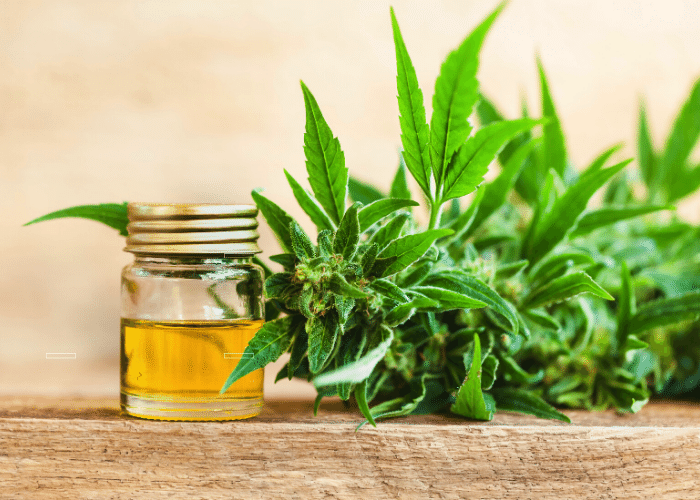There have been occasions when there has been negligence on the Cannabidiol market in Europe as its protection for use was in doubt. Recently however, we have seen experts voicing optimism for cannabis goods.
Research findings performed by industry analysts show that the European CBD industry will undergo a boom in the very near future, in spite of past and present obstacles. Speaking of past and current barriers, the cannabidiol (CBD oil) industry has had to deal with issues like the need to add licenses to its medicinal goods, and Novel Food status of CBD oil is being discussed in order to make it legal throughout the EU and consider it to their foods and goods.
The decision to recognize CBD as a novel food follows the European Commission’s (EC) guidance. In January, the EC supported its opinion that CBD products should be considered a novel food and should not be marketed without further review and authorization.
The legality of CBD oil in the EU
Frankly, European Nations is restrictive in terms of laws and regulations related to cannabis. However, as with other cannabis products, CBD is not exclusively used for recreational purposes. Owing to its non-psychoactive nature, cannabinoids has attracted most medicinal cannabis users in recent years. Largely, people appear to be unaware regarding the legality of CBD in the EU.
Having said that, in the prevalent uncertainty around the legality of the CBD, the facts relating to the THC rates in CBD play a crucial role. The use of medicinal cannabis and CBD was approved by Columbia, Germany, Italy, North Macedonia, Luxembourg, Cyprus, Croatia, Chile, the Netherlands, Canada, New Zealand, Poland, Australia, Finland, Colombia, Norway, Greece and Peru. A few US and Thailand states have approved CBD and medicinal cannabis, too. Belgium has just announced that CBD can only be obtained from pharmacies upon prescription.
Across nearly all of those countries, commercial use of Cannabis products is banned. Nevertheless, due to the improvements in drug law across the EU, small and tiny amounts of drug do not contribute to felonies. Specifically, with some limitations, a few countries allow for CBD production, sales, possession, and usage. Norway, for example, only made CBD legal if the concentration of THC is zero percent.
Similarly, CBD products will only be marketed or used in Sweden if the vendor has a permit, and the THC levels in the drug infused with CBD should be nil. CBD can be grown in Ireland if the THC rates are below 0.2 per cent, which is in accordance with EU CBD regulations. However, if the THC concentration is above 0 percent, the use of CBD is still not legal.
CBD as a Novel Food
A Novel Food is described as food that was not eaten by humans in the EU to a significant degree before 15 May 1997, when the regulations were implemented.
The concepts underpinning the European Union’s Novel Food laws are, inter alia, that all prospective products must be safe for customers and clearly labeled so as not to confuse customers. Where a Novel Food is intended to replace another food, it must’ not vary in such a way that the consumer’s intake of Novel Food will be nutritionally disadvantageous.’
Novel Foods need pre-market authorization based on an appraisal in keeping with those principles. As such, if an EU Member State were to follow the view of the EC (which it is usually supposed to do), then it would not be permissible for CBD to be sold in any of those Member States without authorization.
Consequently, CBD has remained largely unregulated in the EU, with only a few Member States adopting the Novel Foods strategy of the European Commission earlier this year, until now. The German authorities have said that while hemp itself does not qualify as Novel Food, food products with hemp-derived cannabinoids should be labeled as Novel until and unless it contains zero percent of THC.
The CBD market in the EU is booming
The EU CBD industry accounts for a total of 31 percent of the entire CBD market in the country, coming only second to North America. The manufacture of hemp is committed to over 90,000 acres of land in the European continent, most of which are concentrated in France, the Netherlands, Lithuania and Romania. It is far higher than the 8,000 acres devoted in 2011 to hemp production.
The European CBD industry is predicted to be worth about half a million dollars by the end of 2020, while the estimated market size for the end of 2023 is $1.7bn.
Conclusion
Despite the controversy about CBD’s health benefits, more people have started using it in EU. The regulations of the European Union regarding CBD are valid. Notably, each nation has its own stance about CBD’s legality.
As a CBD consumer, learning about CBD’s legality in your home country is better than that of the rest of the EU. Thus one can remain healthy by not attracting and taking legal action to use CBD and it has been considered as novel food in European Union.








1 thought on “The Novel Food Issue And The Legality Of CBD Oil In The EU: What You Need To Know”
Comments are closed.